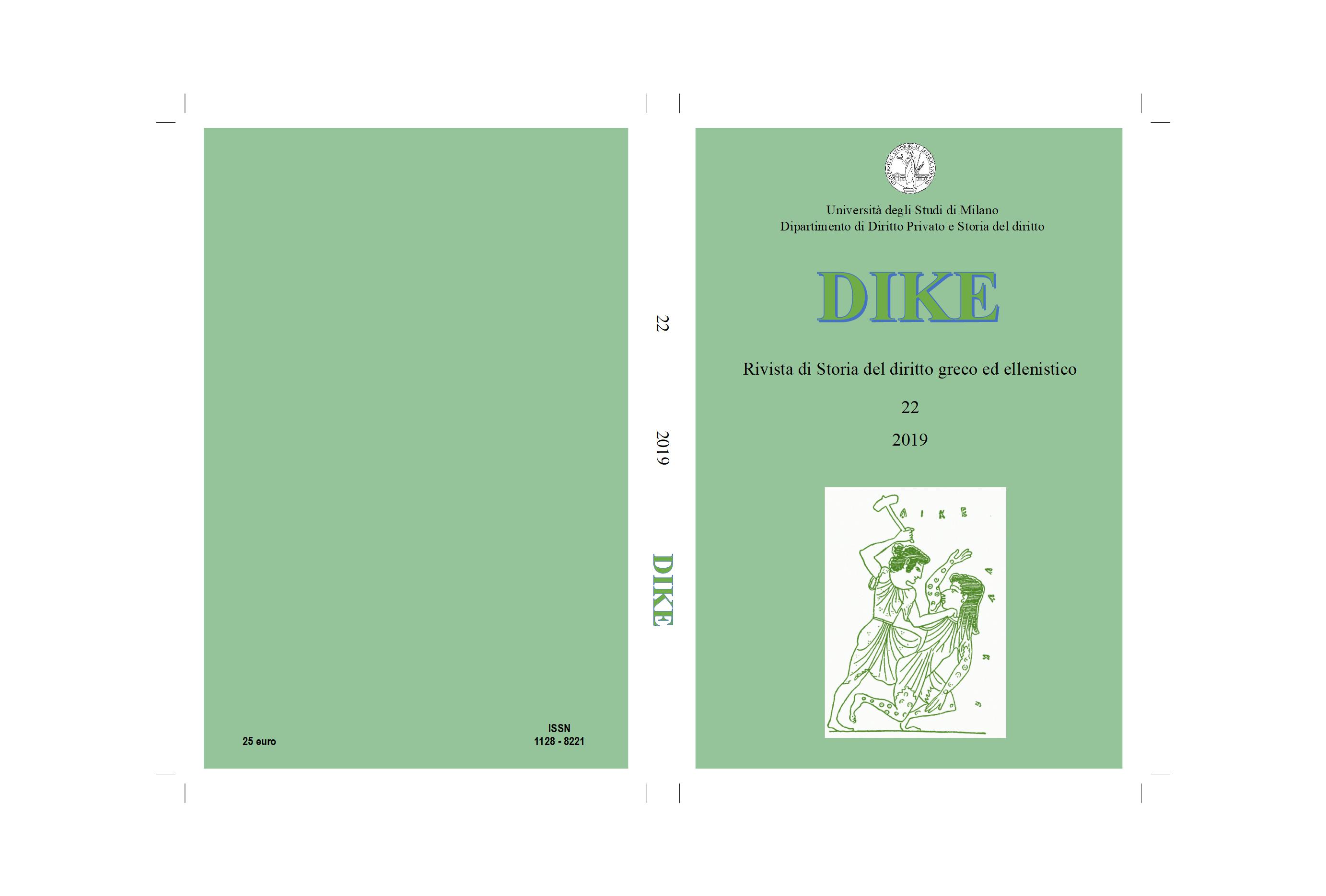Voluntary Exile and Eisangelia in Athens
Remarks about the Lawfulness of a Widespread Practice
DOI:
https://doi.org/10.13130/1128-8221/14505Abstract
This paper aims to investigate the question of the (un)lawfulness of voluntary exile by defendants in relation to eisangelia trials. I argue that the defendant’s habit of evading trial by going into exile was never seen as lawful, despite the frequency with which it occurred. First, I examine the issue of alternating between the death penalty and exile in eisangelia trials with the aim of showing that exile was not a penalty linked to the procedure of impeachment. Then, I argue that Athenian law took into consideration the issue of the (un)lawfulness of self-exile, as demonstrated by the existence of an Athenian law concerning the same matter in homicide cases. Lastly, I analyse some ancient passages that allow us to state that defendants in high treason trials who evaded justice were likened to outlaws. Elements such as the practice of setting bounties on those who escaped trial, extradition requests for fugitives, the imposition of additional penalties such as confiscation of property and inscribing the fugitive’s name on a bronze stele, can corroborate this assumption.
Downloads
Downloads
Published
How to Cite
Issue
Section
License
- Authors retain the rights to their work and grant the journal the right of first publication of the work, simultaneously licensed under a Creative Commons Attribution-ShareAlike licence, which allows others to share the work, indicating the intellectual authorship and first publication in this journal.
- Authors may enter into other non-exclusive licence agreements for the distribution of the published version of the work (e.g. depositing it in an institutional repository or publishing it in a monograph), provided that they indicate that the first publication took place in this journal.
- Authors may disseminate their work online (e.g., in institutional repositories or on their website) before and during the submission process, as this may lead to productive exchanges and increase citations of the published work (see The Effect of Open Access).





